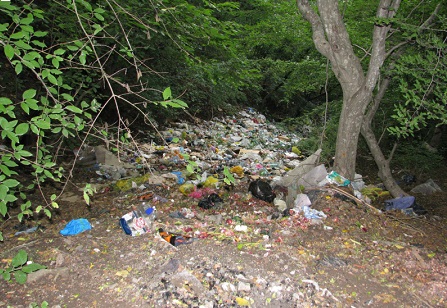Georgia takes action to reduce plastic, environment pollution

Georgia is taking genuine steps to significantly reduce the damage caused by plastic bottles and other pollutants on the environment.
Today Georgia’s Deputy Environment Minister Teimuraz Murghulia met with large companies in the local plastics sector to inform them of the need to operate more sustainably and of the new laws outlined in the Environment Protection Assessment Code.
Reducing the negative environmental effects caused by the plastics industry in Georgia was one of the sections of the Code discussed by local and international officials today by the Ministry of Environment of Georgia. The Code will be introduced in Georgia in 2017.
Murghulia said all aspects of society would be required to adhere to the rules outlined in the Code however those who produced or used plastics would face additional rules that would come into effect in 2019. These obligations concerned the collection and separation of plastic bottles from other rubbish, and recycling them as appropriate.
He said it was widely known plastic bottles were the largest contributor to environment pollution and damaging nature in Georgia.
According to EcoWatch, globally enough plastic is thrown away each year to circle the Earth four times. The environmental news site said it took 500 to 1,000 years for plastic to degrade, and each year one million sea birds and 100,000 marine mammals were killed from plastic in our oceans.
Before the new Code is fully implemented in 2017, Murghulia said the Ministry of Environment would launch a pilot program in a handful of plastic companies to iron out any kinks in the Code before it was rolled out nationwide.
Today Murghulia and other Ministry officials presented the Environment Protection Assessment Code to representatives from the European Union (EU), United Nations (UN), the Netherlands and several other partner states. At the meeting the Ministry discussed the importance of amending Georgia’s current legislation so the country operated on a more sustainable and environmentally-friendly level that met top European standards.
The Code outlined new rules and regulations for businesses, the public and all areas of society. The Code will come into force in 2017.
Some of the initiatives to reduce environmental impacts included:
- The number of businesses required to fulfil environmental rules while carrying out everyday activities will increase;
- Procedures will be implemented that specify the necessity to carry out an environment protection assessment;
- Guidelines will be established to involve and inform the public about environmental issues;
- A range of amendments will be introduced to decrease activities that have a negative impact on the environment; and
- Trans-border environment impact procedures will be created to reduce and prevent conflicts between nations due to the environmental issues.
The aim of the Code was to ensure Georgia followed top environmental standards to reduce its environmental pollution in all areas, from the business sector all the way down to individual households.
 Tweet
Tweet  Share
Share